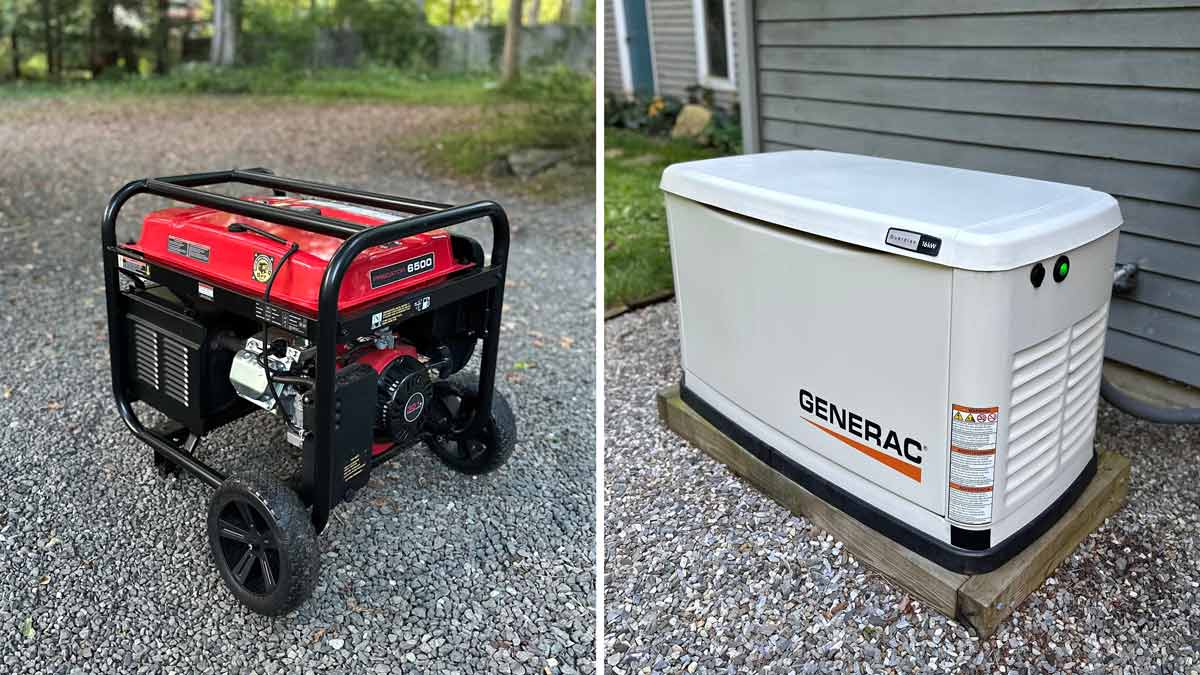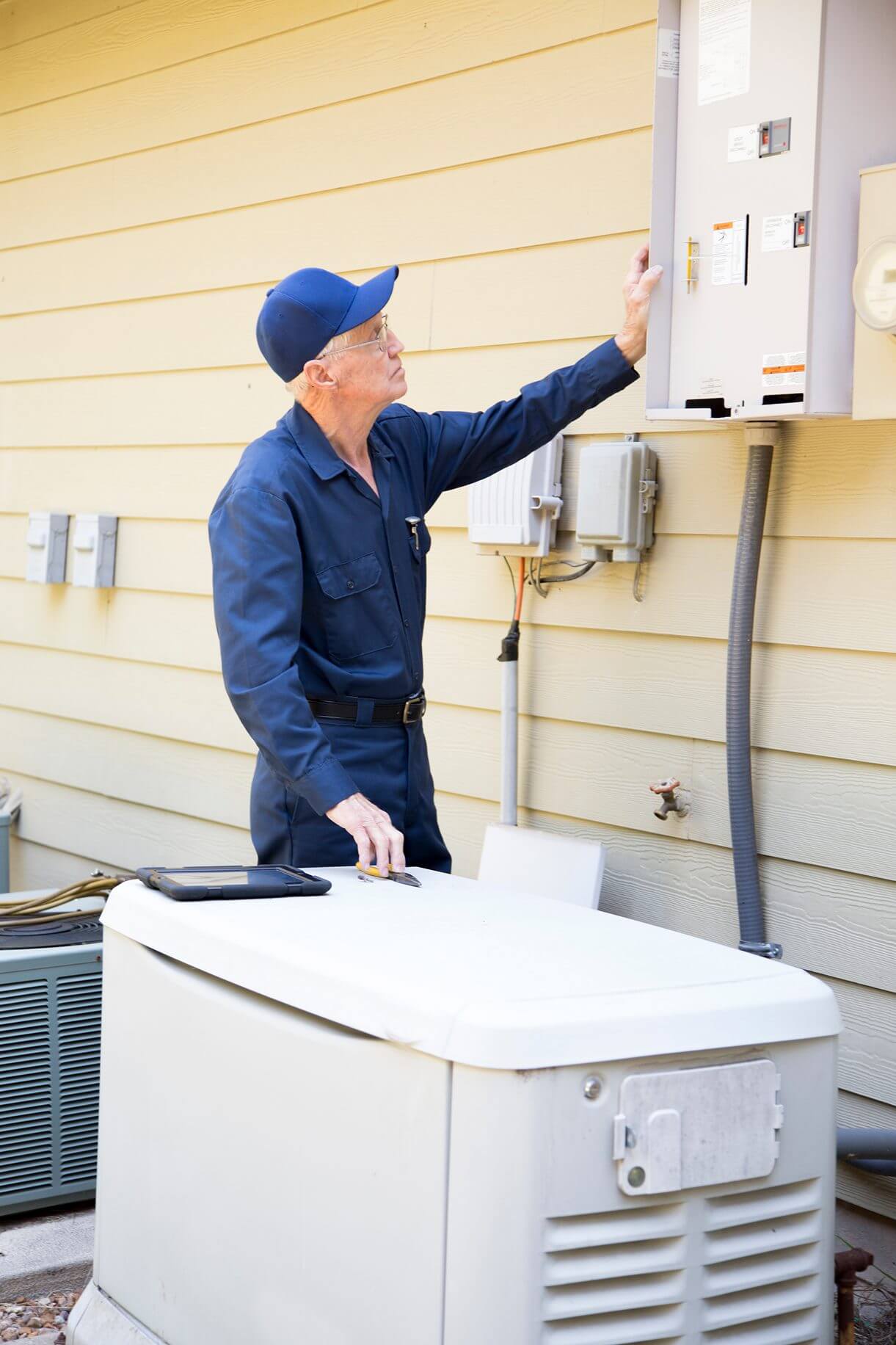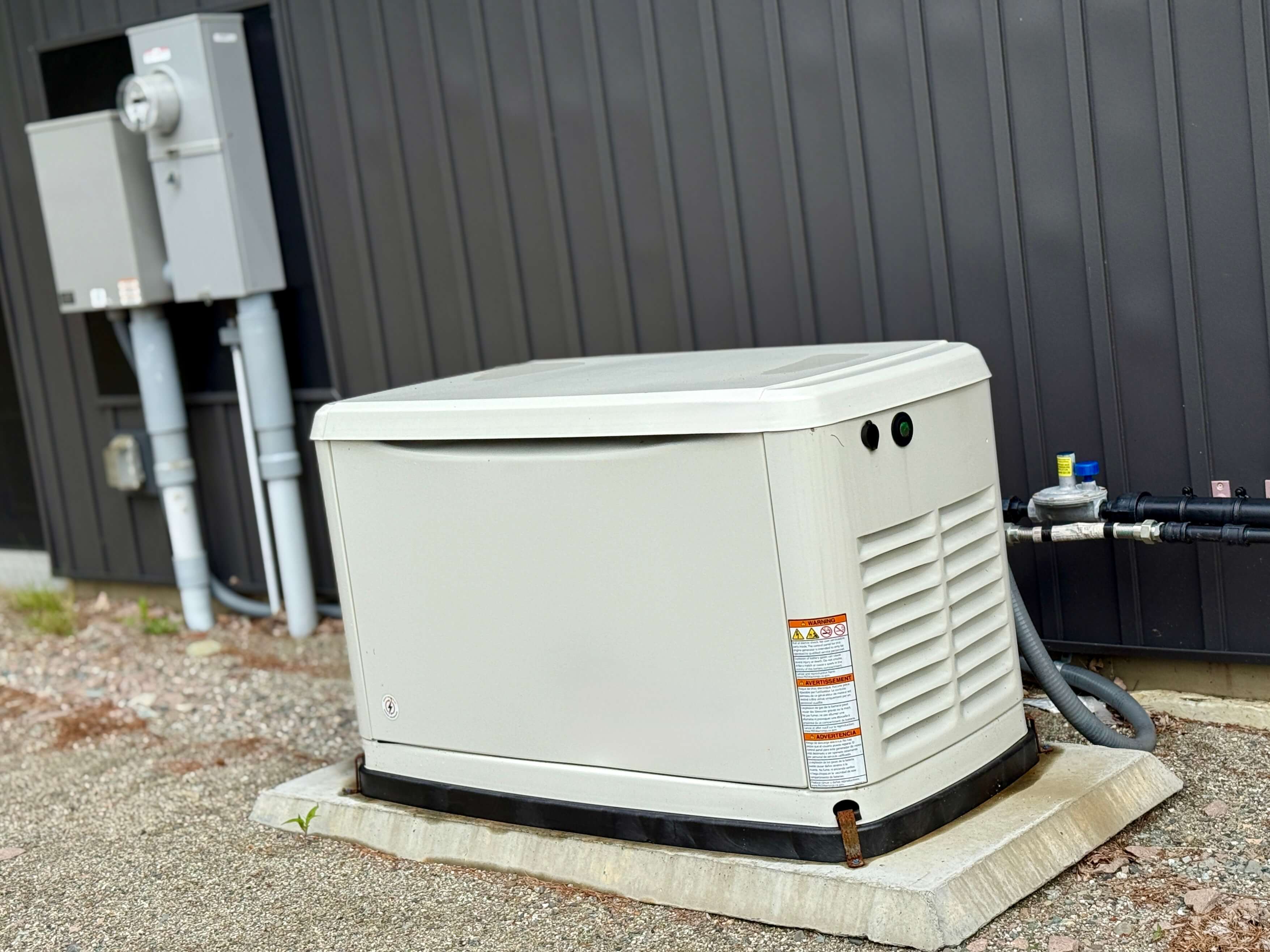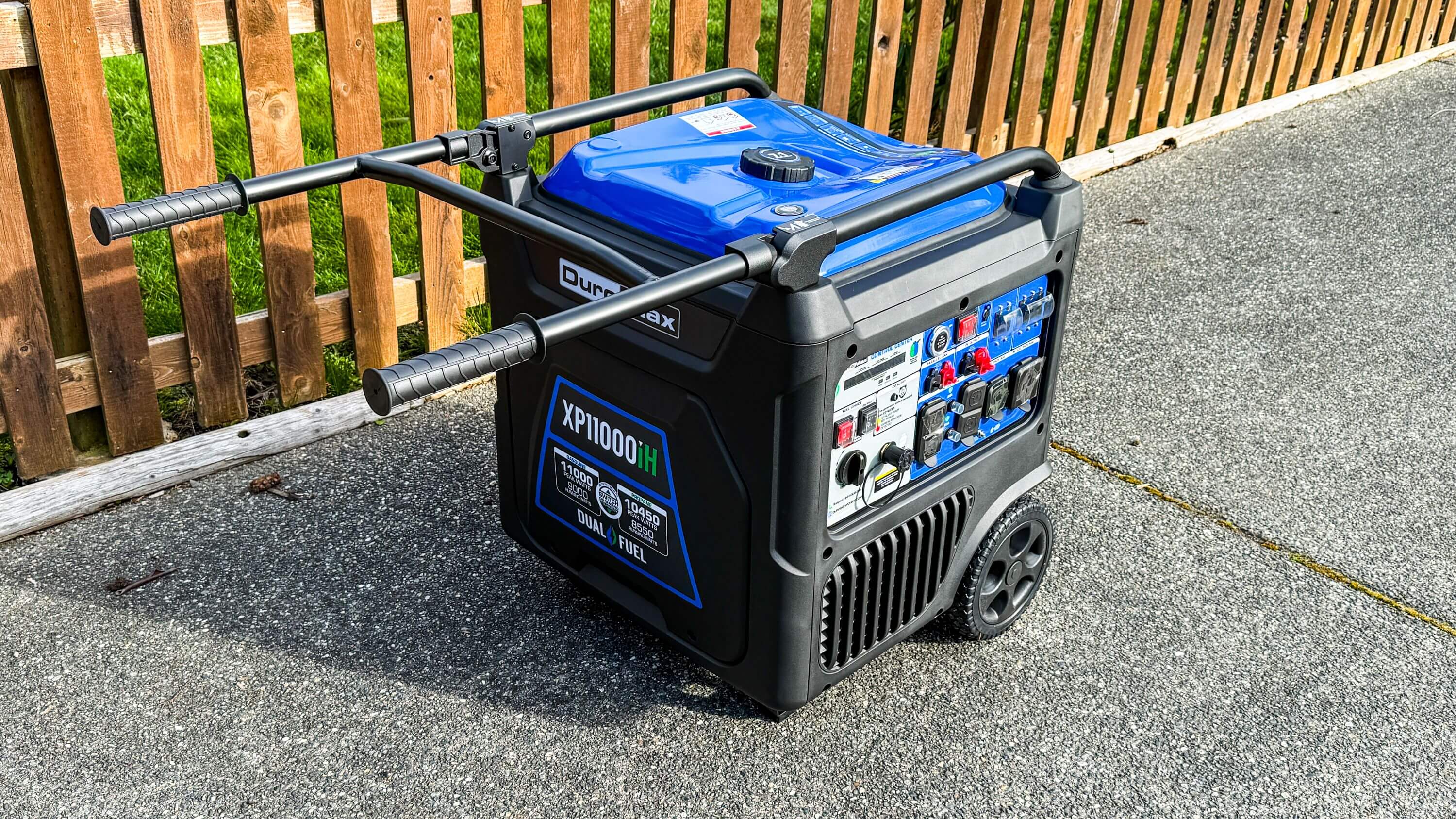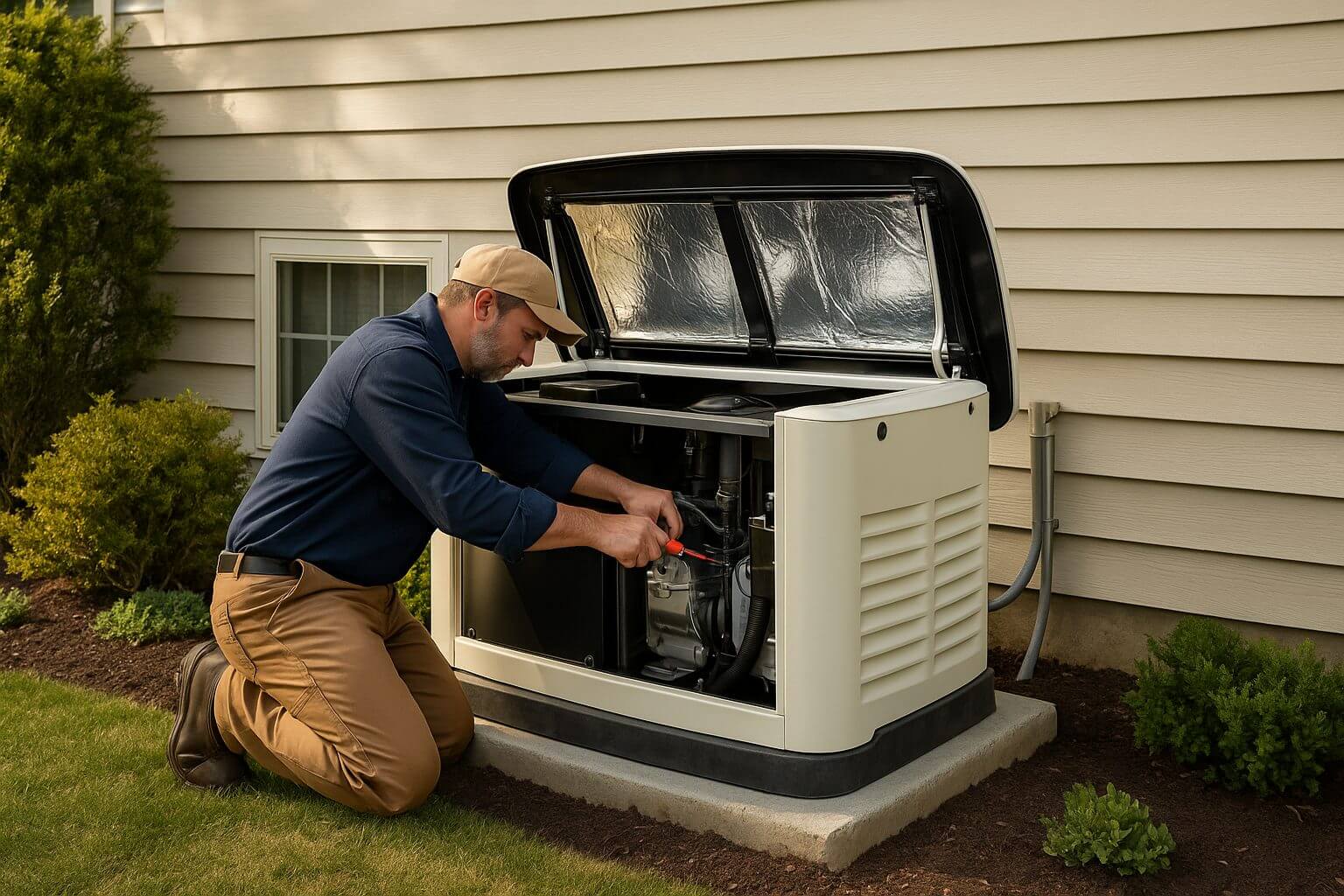Choosing the Right Generator for Your Needs
When choosing a generator, your decision often comes down to how much power you need, how hands-off you want the system to be, and which fuel source works best for you. Some homeowners want a permanent whole-home backup that kicks in instantly during an outage, while others need a portable solution for camping or occasional emergencies.
This guide walks you through the most common types of generators, highlighting their features, benefits, and potential drawbacks, so you can make a confident choice.
Standby (Whole-Home) Generators
Standby generators are permanently installed outside your home, connected to your electrical panel and fuel supply. They start automatically when the power goes out, providing uninterrupted backup.
Best For
- Homes that require continuous power (including HVAC and major appliances)
- Those seeking maximum convenience and automation
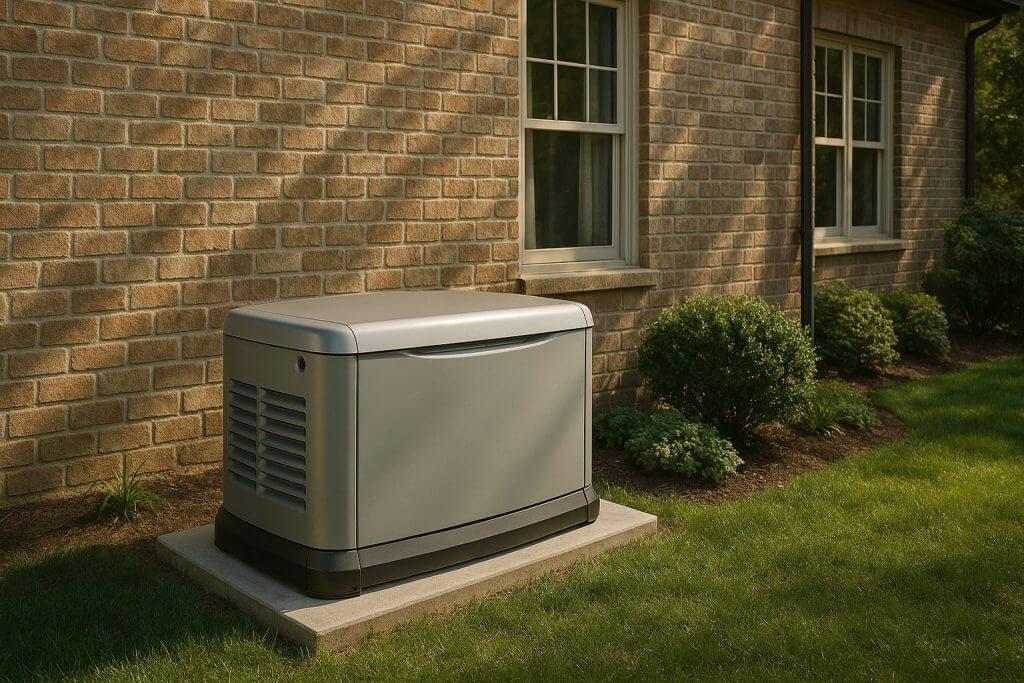
Pros
- Automatic operation with no manual setup
- Can power your entire home
- Long-lasting, reliable performance
Cons
- Higher upfront, installation, and maintenance costs
- Requires professional installation and permits
Portable Generators
Portable generators are movable units powered by gasoline, propane, or diesel. They’re connected to appliances with extension cords or to the home through a manual transfer switch.
Best For
- Short-term power needs during outages
- Outdoor projects, events, or camping trips
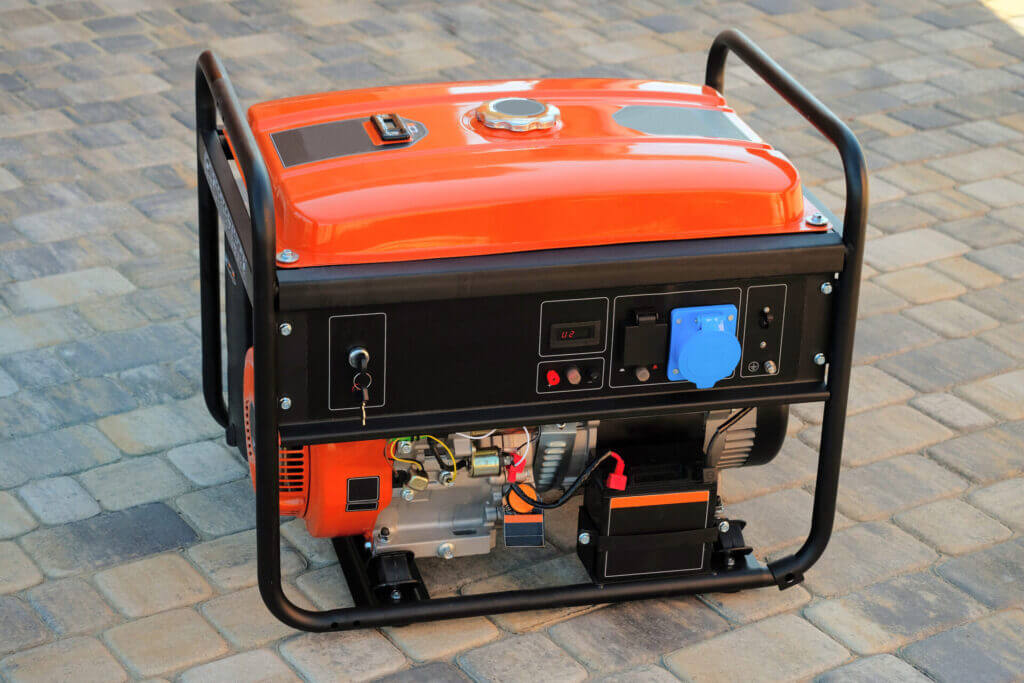
Pros
- Lower cost than standby models
- Easy to store when not in use
- Flexible, multi-purpose use
Cons
- Manual setup required for each use
- Louder operation and fuel refills needed
- Must be operated outdoors for safety
Inverter Generators
Inverter generators are a type of portable unit that uses advanced technology to produce clean, stable power, making them ideal for sensitive electronics. They’re generally quieter and more fuel-efficient.
Best For
- Powering laptops, phones, and medical devices
- Quiet operation in residential or recreational settings
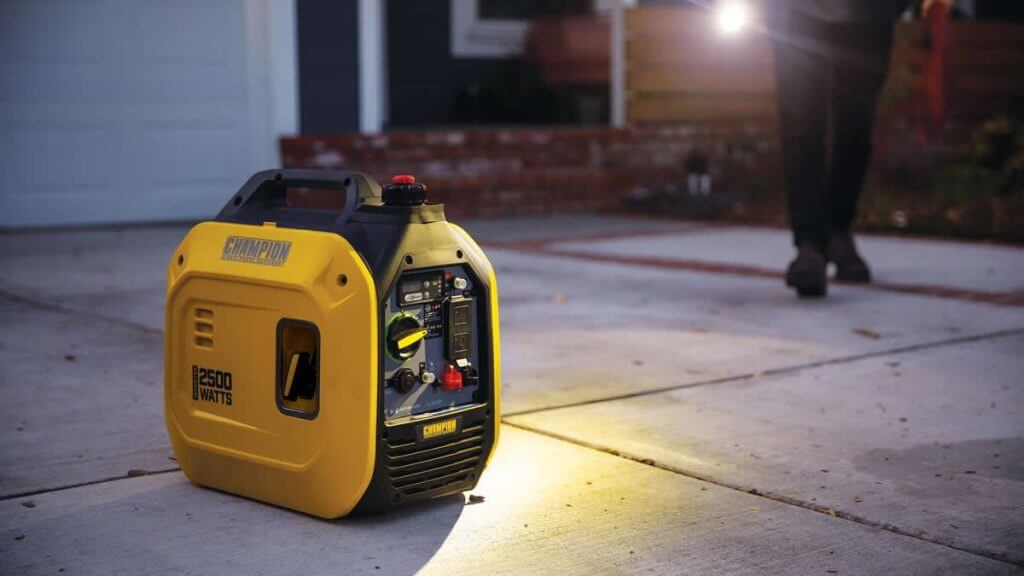
Pros
- Low noise levels
- Efficient fuel consumption
- Safe for electronics
Cons
- Lower maximum power output
- Higher cost per watt compared to standard portable units
Solar (Battery-Powered) Generators
Solar generators store electricity in a built-in battery, recharged via solar panels or sometimes wall outlets. They’re silent, eco-friendly, and portable, but have limited output.
Best For
- Small electronics, lighting, and camping
- Off-grid living or eco-conscious users
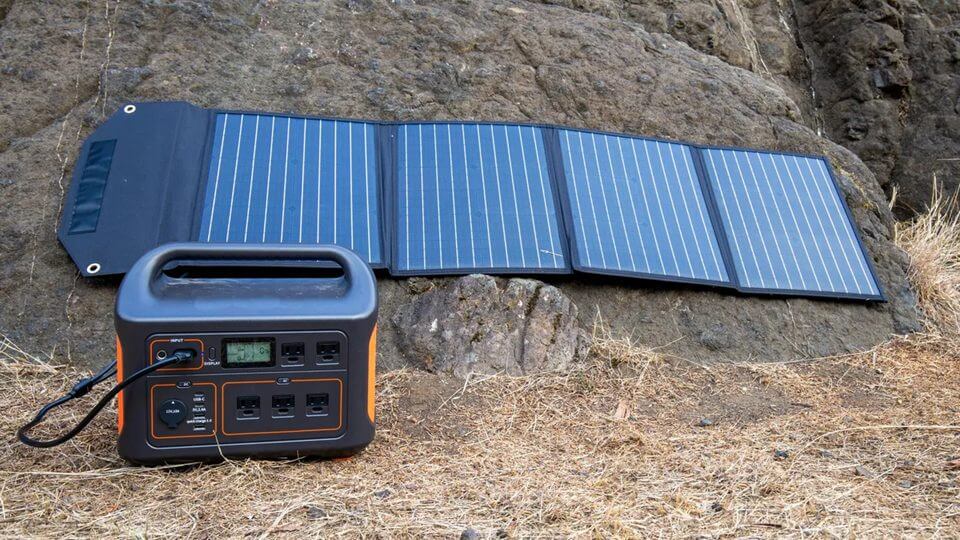
Pros
- Zero emissions and quiet operation
- No fuel costs
- Safe to use indoors
Cons
- Limited capacity for large appliances
- Reliant on sunlight for recharging
Dual-Fuel Generators
Dual-fuel generators run on two different fuel sources, typically gasoline and propane, offering flexibility during extended outages or fuel shortages.
Best For
- Areas where fuel supply is unpredictable
- Homeowners wanting extended run times
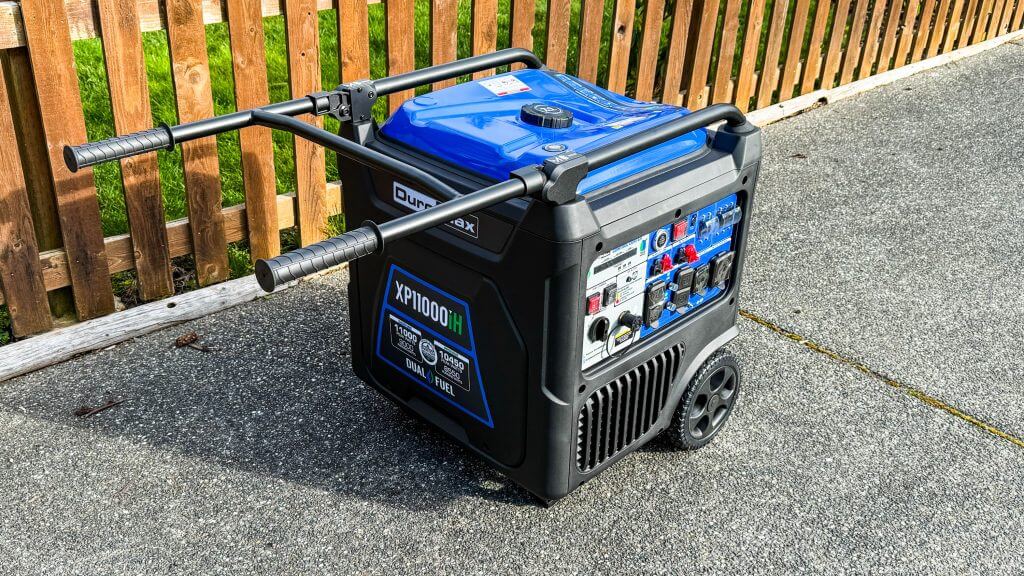
Pros
- Flexibility in fuel choice
- Longer runtime when switching between fuels
- Adaptable for various situations
Cons
- Slightly higher upfront cost
- Requires managing and storing two types of fuel
Diesel Generators
Diesel generators are known for fuel efficiency, durability, and power output, often used in large properties or industrial settings. They can be standby or portable.
Best For
- Heavy-duty, long-term power needs
- Large homes, farms, or businesses
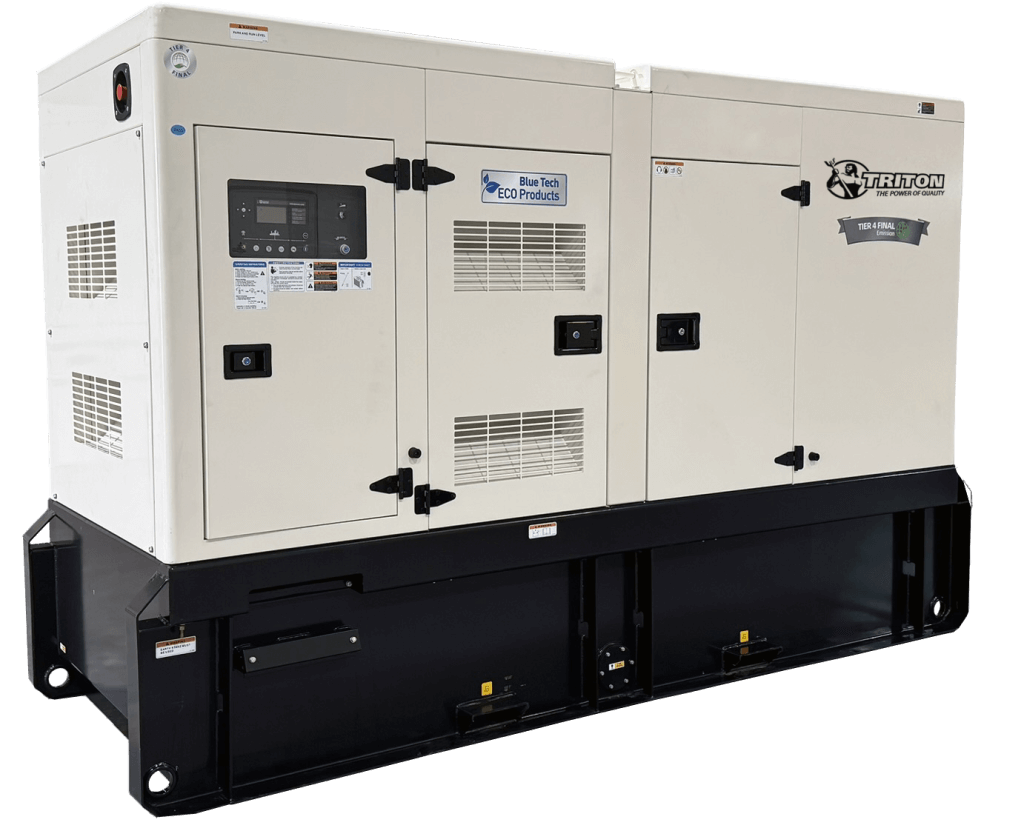
Pros
- Longer lifespan than gasoline units
- More efficient fuel consumption
- Strong performance in demanding conditions
Cons
- Louder than some alternatives
- Diesel can gel in cold weather without treatment
How Do Different Generator Types Compare?
| Generator Type | Automation | Mobility | Power Quality | Ideal Use Case |
|---|---|---|---|---|
| Standby | Automatic | Fixed | High | Full-home backup |
| Portable | Manual | Mobile | Variable | Short-term, multi-use power |
| Inverter | Manual | Mobile | Very clean | Electronics, quiet environments |
| Solar (Battery) | Manual | Mobile | Clean | Eco-friendly, small electronics |
| Dual-Fuel | Manual | Mobile/Fixed | Variable | Flexible fuel backup |
| Diesel | Auto/Manual | Mobile/Fixed | High | Heavy-duty, long-term power |
Final Thoughts
The right generator isn’t about choosing “the best overall” — it’s about choosing what fits your home, budget, and outage risk.
- If You Want Fully Automatic, Whole-Home Power:
A standby generator is the best choice for homes in areas with frequent or prolonged outages. While the upfront cost is higher, you get hands-free operation, automatic startup, and the ability to power most or all of your home for days — or even weeks — if fuel is available. - If You Want an Affordable, Flexible Backup Option:
A portable or inverter generator is ideal for occasional outages, short-term power needs, or recreational use like camping and tailgating. Inverter models add the benefit of quieter operation and cleaner power for sensitive electronics. - If Sustainability and Quiet Operation Matter Most:
A solar generator provides silent, emission-free backup power with no fuel costs. It works best as a supplemental power source or when paired with another generator for longer outages or whole-home needs. - If Fuel Flexibility or Heavy-Duty Power Is a Priority:
A dual-fuel generator allows you to switch between gasoline and propane during emergencies, while diesel generators excel in long-runtime, high-demand situations for large homes, farms, or commercial use.
Before You Decide, Ask Yourself:
- Essential Power Needs: What appliances or systems must stay running during an outage?
- Fuel Availability: Which fuel type is most reliable and affordable where you live?
- Ease of Use: Do you want manual operation, or fully automatic backup power?
- Budget vs. Lifespan: Are you willing to pay more upfront for longer service life and lower hassle?
By weighing these factors, you can confidently choose a generator that balances cost, reliability, and convenience, so your home stays safe, comfortable, and connected when the power goes out.
Compare top-rated generators pros in your area.
Read real homeowner reviews, explore qualifications, and view promotions. Modernize makes it easy to browse professionals and find one that will be perfect for your project.
